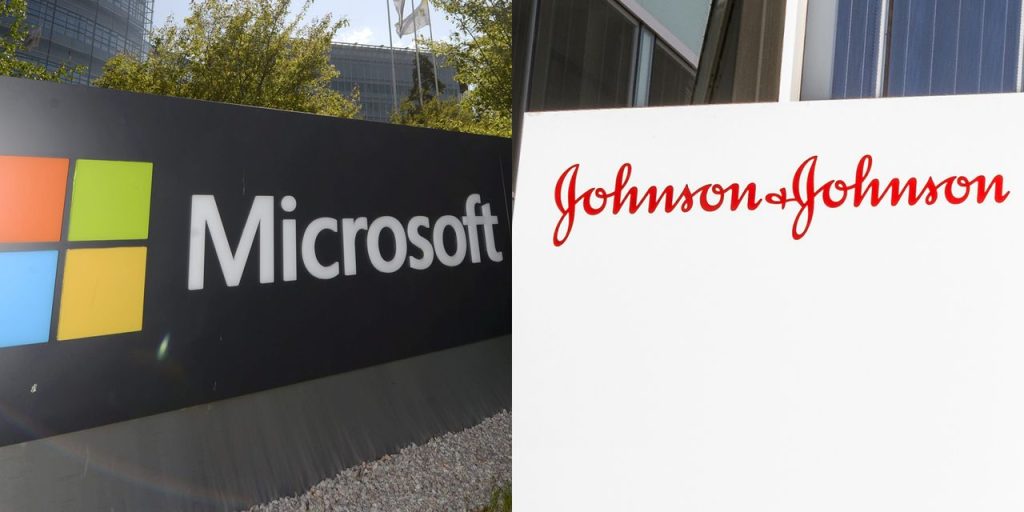Moody’s Investors Service has put the U.S. on alert that it may downgrade its triple-A sovereign rating, amid higher interest rates and doubts about the government’s ability to implement effective fiscal policies.
The rating agency revised its outlook on the rating to negative from stable on Friday, meaning it may downgrade it in the future. Moody’s is the only one of the three major agencies to still hold a triple-A rating on the U.S.; both S&P Global Ratings and Fitch already downgraded it to AA+.
While at least 10 other countries continue to enjoy triple-A ratings, investors interested in holding some AAA-rated U.S. debt have two options — pharmaceutical and medical technology giant Johnson & Johnson
JNJ,
or software behemoth Microsoft Corp.
MSFT,
Microsoft has about $51 billion of outstanding bonds and about $144 billion of liquidity, according to FactSet data. J&J has about $29.5 billion in bonds and $33.5 billion of liquidity.
As the following charts from data solutions provider BondCliQ Media Services show, both companies took advantage of the zero-interest rate backdrop before and during the pandemic years to push out maturities.
The 30-year maturity bucket is the biggest for both issuers.
As the following charts show, over the past two weeks, there have been net sellers of Microsoft bonds, but net buyers of J&J bonds.
Spreads for two of their most active 10-year bonds over yields of Treasury notes of similar maturities have tightened by a wide margin over the last four weeks.
So if Moody’s were to downgrade the U.S. sovereign, would it also downgrade J&J and Microsoft?
There’s no reason to unless they don’t allow corporates to be rated above the sovereign, according to Glenn Reynolds, founder and editor of Macro4Micro, and founder and former CEO of research firm CreditSights.
“There is no good reason to downgrade J&J and MSFT unless the agencies have a view that has changed on the stand-alone fundamentals,” Reynolds told MarketWatch.
“That sovereign ceiling downgrade would mean it is a hard and fast rule and would not require a lot of meetings and air time on the underlying variables that they can deliver to the markets. The agencies like the air time. If it is a hard and fast rule (as opposed to a common practice) then they should just say so.”
Moody’s did not immediately respond to a request for comment.
J&J’s stock was down slightly Monday and has lost 18% in the year to date. Microsoft was down 0.3% and is up 53% in the year to date.
The Dow Jones Industrial Average
DJIA
has gained 3.4% and the S&P 500
SPX
has gained 15% in the period.
Read the full article here















